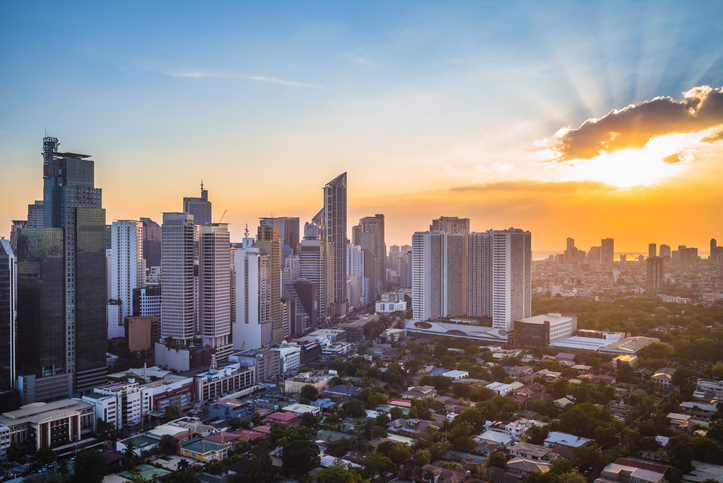Dancing through the ‘cha-cha’ noise in the Philippines
Charter change means going through Congress and holding a national plebiscite to relax a blanket statement in the national charter that currently constricts foreign capital in certain industries like mining, media, and agriculture.
Talks to amend the 1987 Constitution have been revived without the blessing of President Ferdinand Marcos, Jr. The Philippines follows a bicameral Congress wherein the House and Senate must agree on a unified approach to revising the Constitution before it can be put up for a public vote. However, the House of Representatives and the Senate are not on the same page on how to proceed with charter revisions.
These “cha-cha” talks unfolded in the middle of structural changes introduced under Marcos and by his predecessor, former President Rodrigo Duterte, that opened more doors for inbound investments to the Philippines. The country joined the Regional Comprehensive Economic Partnership, the world’s biggest trade bloc, in February which allows for smoother cross-country trade of goods and services at minimal tariffs.
No rush for reforms
The revised Public Service Act opened public transportation like airports and railways as well as telecommunications for fully foreign-owned entities to build and operate. Meanwhile, changes to the Foreign Investment Act and the Retail Trade Liberalization Act allowed international investors to put up domestic enterprises for as low as PHP25 million (about USD500,000) in paid-up capital.
These new laws do away with the old 60-40 equity requirement, where 40% is the maximum cumulative ownership of foreign nationals. Generation of renewable energy may be entirely foreign-owned, while electricity transmission and distribution remain covered by the foreign ownership cap. Republic Act No. 11534 or the Corporate Recovery and Tax Incentives for Enterprises Act likewise reduced the corporate income tax rate from 30% to 25% currently, with a gradual reduction all the way to 20% by 2027 to put the Philippines at par with fellow Southeast Asian countries. Fiscal incentives have also been consolidated under the watch of one central agency, removing inconsistencies in the grant of tax holidays.
These reforms are in nascent stages, having been passed in the middle of COVID-19 restrictions. Lags in implementation by Philippine government agencies indicate that the full impact of these reforms have yet to be realized.
Foreign direct investments (FDI) have rebounded to hit an all-time high in 2021 following a slump during the peak of pandemic-induced lockdowns at USD12 billion in 2021. It slipped to USD9.2 billion in 2022, which analysts attribute to rising global interest rates and inflation. Still, this is higher than the pre-pandemic FDI haul of USD8.7 billion in 2019.

It is against this backdrop where we say there is little incentive to rush Constitutional reforms to relax restrictions on foreign ownership since investors are still trying to digest brand-new policy nudges as they draft their expansion plans. The Philippines remains a bright spot for growth, outpacing most of its peers as well as developed nations which should encourage more investment flows into the economy.
Cha-cha unlikely to pass
Latest statements from senators indicate that they are unlikely to dance the cha-cha with President Marcos cold to the proposal who believes that the reforms mentioned are more than enough to attract more foreign players.
Efforts to amend the 36-year-old Constitution have all failed under past presidents amid fear that changes might go beyond economic provisions and introduce political maneuvers like longer terms of office for elected officials. It is likely to see the same fate under Marcos, who appears unwilling to use his strong political capital over cha-cha.
Even the biggest Filipino business chambers say there is no longer an urgency to amend the Constitution –– a reform they lobbied for in recent years –– given new laws and regulations that have addressed impediments to additional investments and job creation. The Makati Business Club, one of the most prominent leagues of corporate executives, said a protracted debate on charter change could force foreign firms to hold out on investment decisions as they wait for political stability rather than encourage additional equity placements in the economy.
Cha-cha talks are therefore political noise investors should cut through.
Bigger challenges ahead
The high cost of doing business remains the biggest concern of current and prospective investors in the country, worsened by elevated inflation globally. High power costs, lacking infrastructure, and red tape are among the deterrents to more investment flows. The Philippines ranked seventh out of 10 ASEAN states in the World Bank’s Doing Business 2020 report, only faring better than Cambodia, Lao PDR, and Myanmar. This trend is mirrored by net foreign direct investments received by countries in the region.

High inflation, which hit 8.7% before trending slower in March 2023, has led to higher borrowing rates as the Philippine central bank sought to temper price spikes and match tightening moves by the US Federal Reserve. Higher Fed rates are blamed for a sizeable dip in FDI inflows towards developing Asia in the first few months of 2023 – net flows to the Philippines plunged by 45.7% while Vietnam saw a 16.3 drop year-on-year – but these declines are likely short-lived. Further, this high interest rate environment is unlikely to trigger a global economic crisis, despite some fears triggered by recent isolated incidents of bank fallouts.
More than US borrowing rates, investors will remain on the lookout for encouraging signs of growth in every country. In the Philippines, there are new pockets for investments created under the new administration as the government expands big-ticket infrastructure to more public-private partnerships, alongside plans to relax the Build-Operate-Transfer law to make it easier for foreign contractors to do business in the country.
Years after the pandemic, there is much capital swirling around the global economy and the Philippines is in a good position to capture these flows, with or without pro-business Constitutional tweaks. The Philippines is well on track to sustain above-7% annual growth in the years to come. We continue to believe that Developing Asia, including the Philippines, are centers of global growth and investors should not hesitate to take part in it.
This original article has been produced in-house for Lundgreen’s Investor Insights by on-the-ground contributors of the region. The insight provided is informed with accurate data from reliable sources and has gone through various processes to ensure that the information upholds the integrity and values of the Lundgreen’s brand.






